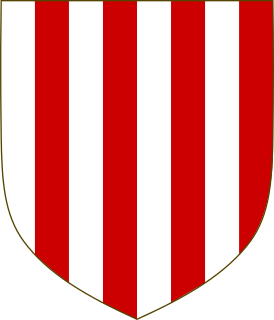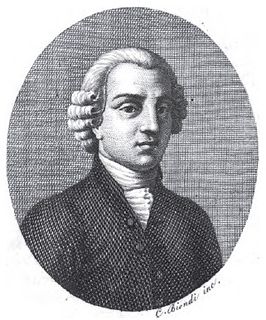Related Research Articles

Carlo Osvaldo Goldoni was an Italian playwright and librettist from the Republic of Venice. His works include some of Italy's most famous and best-loved plays. Audiences have admired the plays of Goldoni for their ingenious mix of wit and honesty. His plays offered his contemporaries images of themselves, often dramatizing the lives, values, and conflicts of the emerging middle classes. Though he wrote in French and Italian, his plays make rich use of the Venetian language, regional vernacular, and colloquialisms. Goldoni also wrote under the pen name and title Polisseno Fegeio, Pastor Arcade, which he claimed in his memoirs the "Arcadians of Rome" bestowed on him.

Roberto Abbado is an Italian opera and symphonic music conductor. Currently he is Artistic Partner of The Saint Paul Chamber Orchestra. In 2015 he has been appointed Music Director of Palau de les Arts Reina Sofia in Valencia, Spain. From 2018 he's Music Director of the Festival Verdi in Parma. Previously he held the position of Chief Conductor of Münchner Rundfunkorchester.

The Grimani family were a prominent Venetian patrician family, including three Doges of Venice. They were active in trade, politics and later the ownership of theatres and opera-houses. Notable members included:
Giuseppe Farinelli was an Italian composer active at the end of the 18th century and the beginning of the 19th century who excelled in writing opera buffas. Considered the successor and most successful imitator of Domenico Cimarosa, the greatest of his roughly 60 operas include I riti d'Efeso, La contadina bizzarra and Ginevra degli Almieri. More than 2/3 of his operas were produced between 1800-1810 at the height of his popularity. With the arrival of Gioachino Rossini his operas became less desirable with the public, and by 1817 his operas were no longer performed. His other compositions include 3 piano forte sonatas, 3 oratorios, 11 cantatas, 5 masses, 2 Te Deums, a Stabat mater, a Salve regina, a Tantum ergo, numerous motets, and several other sacred works.
Andrea Molino is an Italian composer and conductor. He has first attracted international attention through a video/music theatre work, Those Who Speak In A Faint Voice, a project about capital punishment, and later through the multimedia music theatre projects Credo, and Winners.
Domenico Fischietti (1725–1810) was an Italian composer.
Giuseppe Lillo was an Italian composer. He is best known for his operas which followed in the same vein of Gioachino Rossini. He also produced works for solo piano, a small amount of sacred music, and some chamber music.

La vedova scaltra is an opera in three acts by Ermanno Wolf-Ferrari to a text by Mario Ghisalberti, after Carlo Goldoni's original play first given in 1748.

Sara Mingardo is an Italian classical contralto who has had an active international career in concerts and operas since the 1980s. Her complete recording of Anna in Hector Berlioz's Les Troyens won a Gramophone Award and both the Grammy Award for Best Opera Recording and the Grammy Award for Best Classical Album in 2002. Some of the other roles she has performed on stage or on disc include Andronico in Tamerlano, Mistress Quickly in Falstaff, Rosina in The Barber of Seville, and the title roles in Carmen, Giulio Cesare, Riccardo Primo, and Rinaldo. She has also recorded several Vivaldi cantatas, Bach cantatas, and such concert works as Mozart's Requiem, Rossini's Stabat Mater, and Vivaldi's Gloria among others.

The Teatro Goldoni is one of the opera houses and theatres of Venice. Today it is the home of the Teatro Stabile del Veneto. The modern theatre is located near the Rialto Bridge in the historic center of Venice.

Teatro San Samuele was an opera house and theatre located at the Rio del Duca, between Campo San Samuele and Campo Santo Stefano, in Venice. One of several important theatres built in that city by the Grimani family, the theatre opened in 1656 and operated continuously until a fire destroyed the theatre in 1747. A new structure was built and opened in 1748, but financial difficulties forced the theatre to close and be sold in 1770. The theatre remained active until 1807 when it was shut down by Napoleonic decree. It reopened in 1815 and was later acquired by impresario Giuseppe Camploy in 1819. In 1853 the theatre was renamed the Teatro Camploy. Upon Camploy's death in 1889, the theatre was bequeathed to the City of Verona. The Venice City Council in turn bought the theatre and demolished it in 1894.

Andrea Liberovici is an Italian composer of contemporary classical music and a theatre director.
Anna Girò, also known as l'Annina del Prete Rosso, la Nina del Prete Rosso, or l'Annina della Pietà, was the stage name of Anna Maria(?) Maddalena Tessieri, an Italian mezzo-soprano/contralto of the 18th century. She is best remembered for her numerous collaborations with composer Antonio Vivaldi who wrote operatic roles for her. She is the singer who performed the greatest number of Vivaldi's operas, the one who kept them in her repertoire the longest time and who made them known across the largest geographical area.

La fida ninfa is an opera by Antonio Vivaldi to a libretto by Scipione Maffei. The opera was first performed for the opening of the Teatro Filarmonico in Verona on 6 January 1732. Among the arias is Alma oppressa de sorte crudele.

Sebastiano Biancardi, known by the pseudonym Domenico Lalli, was an Italian poet and librettist. Amongst the many libretti he produced, largely for the opera houses of Venice, were those for Vivaldi's Ottone in villa and Alessandro Scarlatti's Tigrane. A member of the Accademia degli Arcadi, he also wrote under his arcadian name "Ortanio". Lalli was born and raised in Naples as the adopted son of Fulvio Caracciolo but fled the city after being implicated in a bank fraud. After two years wandering about Italy in the company of Emanuele d'Astorga, he settled in Venice in 1710 and worked as the "house poet" of the Grimani family's theatres for the rest of his career. In addition to his stage works, Lalli published several volumes of poetry and a collection of biographies of the kings of Naples. He died in Venice at the age of 62.
Carlo Federici (1778–1849) was an Italian playwright and lawyer. He was the son of Camillo Federici, an even more prolific playwright. Affected by ill-health in his later years, Camillo dictated many of his plays to his wife and children, including Carlo. Federici was born in Genoa and educated in law at the University of Padua. His 1814 play Il paggio di Leicester, based on Sophia Lee's 1785 historical novel The Recess, was an intermediate source for the libretto of Rossini's opera, Elisabetta, regina d'Inghilterra.
Buovo d'Antona is an Italian-language dramma giocoso opera in 3 acts by Tommaso Traetta, on a libretto by Carlo Goldoni based on the Bevis of Hampton chivalric tale, which premiered at the Teatro San Moisè, Venice on 27 December 1758. The opera was well received and staged in Bologna, Turin, Verona, Palma de Majorca, Barcelona, Seville and finally Dresden in 1772. Antonio Zatta's Venetian edition of Goldoni's plays (1788–95) gives "1750" as the date for a Florence premiere of the opera, but this is now thought to be a mistake.
Luca Mosca is an Italian composer. He is best known for his 2007 opera Signor Goldoni.
Savino Monelli was an Italian tenor prominent in the opera houses of Italy from 1806 until 1830. Amongst the numerous roles he created in world premieres were Giannetto in Rossini's La gazza ladra, Enrico in Donizetti's L'ajo nell'imbarazzo and Nadir in Pacini's La schiava in Bagdad. He was born in Fermo where he initially studied music. After leaving the stage, he retired to Fermo and died there five years later at the age of 52.
References
- ↑ The Gramophone - Volume 85, Issue 1 - 2007 Page 111 Venice Teatro La Fenice World premiere of Signor Goldoni, an opera by Luca Mosca and librettist Gianluigi Melega. Commissioned to commemorate the 300th anniversary of Venetian playwright Carlo Goldoni, the workstars Roberto Abbondanza and Sara Mingardo, and is conducted by Andrea Molino. Performances also on September 23, 25, 27 & 29 Details: +390412424/ www.teatrolafenice.it September"> Cardiff Millennium Centre Welsh ...